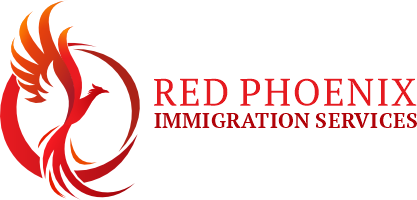Humanitarian and Compassionate (H&C)
What is the Humanitarian and Compassionate Program?
The Humanitarian and Compassionate (H&C) Program is a program offered by Immigration, Refugees and Citizenship Canada (IRCC) that allows individuals who are in Canada and facing exceptional circumstances to apply for permanent residence on humanitarian and compassionate grounds. This program is designed to address situations where individuals may not meet the requirements of other immigration programs, but have compelling reasons to stay in Canada due to humanitarian or compassionate considerations.
The H&C Program takes into account various factors, including the best interests of any children involved, establishment in Canada, family ties to Canadian citizens or permanent residents, and the hardship that the individual would face if they were to return to their home country. It provides an opportunity for individuals to present their case and explain why they should be granted permanent residence in Canada based on humanitarian and compassionate grounds.
To apply under the H&C Program, individuals need to submit a detailed application to IRCC, outlining their personal circumstances and providing supporting documentation to demonstrate the humanitarian and compassionate factors that warrant consideration. The application process requires a thorough assessment of the individual’s situation, and decisions are made on a case-by-case basis.
It’s important to note that the H&C Program is discretionary, meaning that it is up to IRCC to determine whether an individual’s circumstances merit granting permanent residence. Meeting the eligibility requirements of the program does not guarantee approval. It’s advisable to seek the guidance of an immigration lawyer or a qualified immigration professional when applying under the H&C Program, as it can be complex and requires a strong presence of compelling humanitarian and compassionate grounds.
Resettlement from outside of Canada
This program is managed through a referral by the United Nations Refugee Agency, a designated referral organization or a private sponsorship group. Those seeking resettlement must pass a medical exam and a security and criminal check. These organizations make the referral to the government of Canada and applicants may apply under one of these two categories:
- Convention Refugee Abroad Class – applies if you are outside your home country and cannot return due to a fear of persecution based on race, religion, political opinion, nationality or membership in a particular social group (gender, sexual orientation etc.). The Government of Canada can sponsor convention refugees, a group of people, an organization, or a mix of both. You can also be a Convention refugee if you have the funds to support yourself and your family after arriving in Canada.
- Country of Asylum Class – applies if you are outside your home country or the country where you normally live, have been seriously affected by civil war or armed conflict, or have been denied fundamental human rights on an ongoing basis.
- In this category, you can be privately sponsored or admissible if you have the funds needed to support yourself and your family in Canada.
Claiming refugee protection from inside Canada
This program is for those already in Canada who fear they will be in danger or persecuted (through risk to life, cruel and unjust treatment, etc.) if they return to their home country or where they usually live. You can make a refugee claim to the Immigration Refugee Board of Canada as a Convention Refugee or a Person in Need of Protection.
- You may be eligible as a Convention Refugee if you are unable to return to your home country or the country in which you usually live because of fears of persecution based on race, religion, political opinion, nationality or membership in a particular social group (gender, sexual orientation, etc.).
- You may be eligible as a Person in Need of Protection if you can’t safely return to your home country due to the danger of torture, the risk to life, or the risk of cruel and unusual treatment or punishment.
